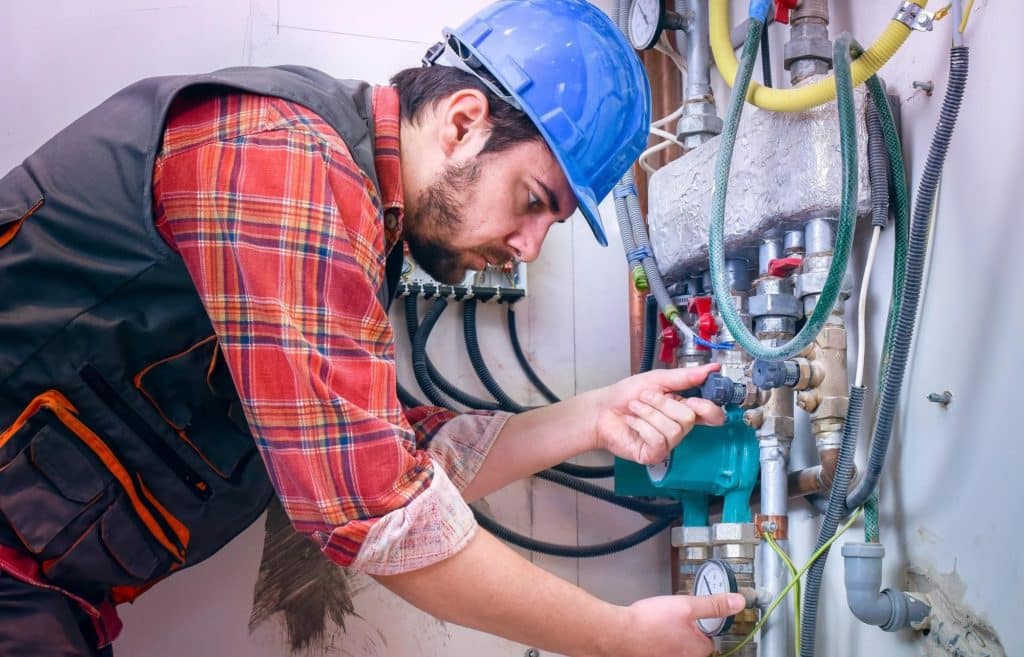In a commercial environment, a working boiler is hugely important as it provides the building – and everyone within it – with heating and warm water. As such, if your boiler breaks down, it could have a range of detrimental effects. For example, a school may be unable to function without the capability to keep students and teachers warm, and for facilities that require warm water like swimming pools, a lack of a functioning boiler will lead to closure until the appliance is fixed.
Performing regular maintenance checks on your commercial boiler system is a good way of ensuring it’s in fully working condition and unlikely to break down. However, it’s important to know where to draw the line between what you can realistically and safely do yourself and what tasks are better suited to a professional heating engineer.
How to maintain a boiler heating system
While many of the duties associated with maintaining a boiler require the attention of a qualified engineer, there are some checks outside the annual commercial boiler service that you can carry out yourself.
As the owner or operator of a commercial boiler, you can:
- test safety valves and low water cut-offs
- fit additional protection against freezing
- keep tabs on the quality and strength of the pilot flame
- monitor the continued quality of the flame after ignition, checking that it doesn’t begin to flicker or weaken
- clear obstructions from the outside air damper
- ensure a suitable water level
- remove unnecessary debris around the boiler
- perform regular checks for leaks and general damage
document performance in the boiler log to pick up on trends and pre-empt future faults.

How boiler water level is maintained
Maintaining the water level in your boiler is important, and failure to do this can lead to combustion explosion, thermal shock, an excessive build-up of steam or even meltdown.
Fortunately, checking the water level is a relatively simple process. All boilers feature a gauge for indicating the water level, so as long as the reading is approximately positioned in the middle of the gauge, the water level should be suitable and unlikely to cause any damage to the boiler. You should then continue to monitor the water level, and if the reading goes too low or too high, contact a qualified engineer.
How to maintain boiler efficiency
Optimising efficiency is a big part of commercial boiler maintenance. There are various ways to do this. In the first instance, when you are selecting an appliance, make sure that you resist the temptation to over-size your boiler so that you don’t end up wasting energy on a larger appliance than you really need. You may also benefit from having a sequence of boilers that you can use in a cascade arrangement. Certain boilers operate at a greater efficiency if they are running at a percentage of their potential output. This setup also means maintenance can be conducted without any interruption to service.
It’s also crucial to make sure you understand and can use your boiler controls effectively to maximise efficiency. For example, you may benefit from using a weather compensation mode.
How to relight a pilot light on a commercial boiler
More often than not, the reason why a pilot light goes out is a fault with the thermocouple. If the thermocouple is broken, the supply of gas may be reduced. However, alternative causes could be a build-up of substances in your commercial boiler system that prevent your pilot light from igniting or a hole in your boiler could be blowing the light out after ignition.
Regardless of the cause, your main priority should be to check that there isn’t any sign of a gas leak before attempting to reignite the pilot light yourself. At this point, you may even find that there’s no gas input at all. If this is the case, you should contact your gas supplier as it will be a fault at their end. Each boiler is different, so if you wish to reignite the pilot light yourself, you should read through the instruction manual for your commercial boiler.
Performing frequent maintenance checks is likely to extend the lifespan of your commercial boiler, but if your appliance breaks down and you need an instant replacement, you can temporarily hire a commercial boiler.